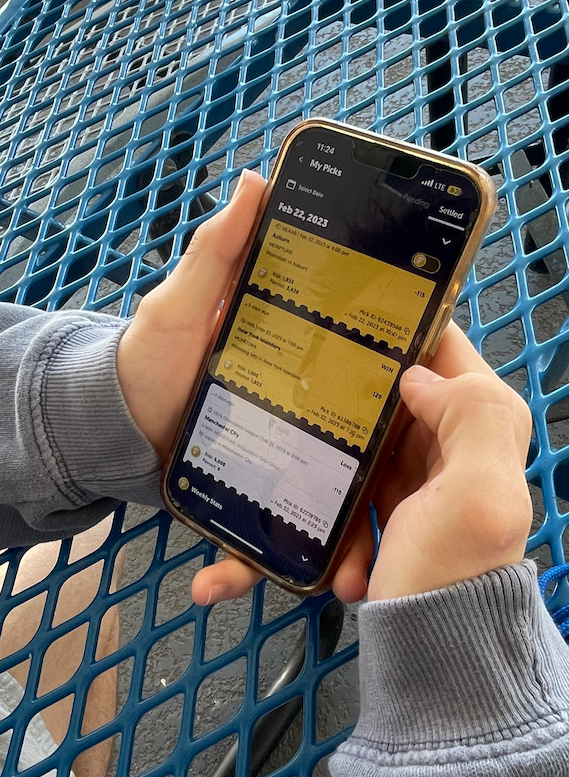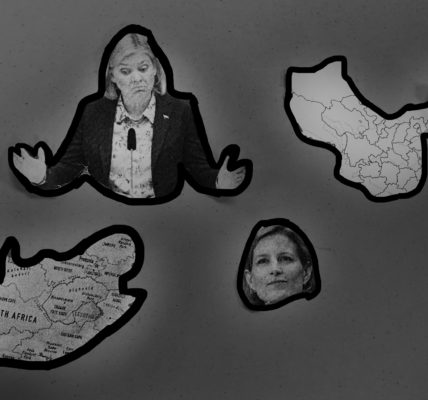By Landon Rogers-Neubarth
Teenagers rebelling and indulging in adult activities such as drinking, vaping, and smoking are not entirely uncommon. Despite the dangers of these activities 30 percent of 15-20-year-olds admit to illegally drinking. Underaged sports gambling is the newest threating phenomenon being popularized across the nation contributing to the USA’s $100 billion lost to gambling annually. With the rise of online gambling, it has become readily accessible for anyone who possesses a computer or mobile device. Minimal precautions are being taken to reduce underage gambling; commonly using verification processes including scanning an ID on the app followed by a “face scan.” Underage gamblers can bypass this through using an adult or parent’s ID with and without their consent. Another popular alternative is fraudulent IDs, which also easily bypass security protocols.
According to Algamus Gambling Treatment, 70 percent of male high schoolers have admitted to gambling in some form, with seven percent of high school students forming an addiction. Sports gambling is largely a male issue due to 76 percent of sports viewership being male, based on data from statista.com, the market leader in the provision of reliable business data. Underage gambling has more than doubled since 2017 due to large online gambling companies such as FanDuel, BetMGM, and Draft Kings. These companies have spent a combined $200 million working to legalize sports gambling through lobbying across the United States, with $37 million in Florida alone.
The consequences for both underage gambling and drinking are practically the same, both being second-degree misdemeanors. The difference is drinking has several more preventative measures to stop minors. For mobile sports gambling, a non-tangible illegal activity, other than verification systems there are almost no methods currently to catch underage gamblers, as sports gambling apps would lose money from increasing security. These apps are not being held accountable and therefore have no incentive to change the current policy or increase the number of users they ban.
Hundreds of Ponte Vedra High School students routinely gamble on sporting events with the hopes of receiving a little profit. Sports gambling app “Fliff” offers a free dollar every day that may only be used to gamble to ensure the return of their customers. This policy also removes negative feelings commonly brought through losing in gambling as if the money gambled was free, and that winnings are free money. The contingency to the free money is a gambler must have over $50 of winnings in order to withdraw any money. This makes it difficult to earn winnings from the free dollar and encourages the user to spend their own money.
Students who do pass this threshold typically become overconfident in their sports gambling abilities and choose not to cash out. PVHS junior Carter Lust got caught up in the dreams of a big win, having accumulated over $55 on Fliff without spending a dollar, but lost it all on a parlay that would’ve quintupled his money. “I had won on a few of these far-fetched bets before and so I hoped for the best.” Another student had accumulated $2,000 on the app without spending a dollar of their own money but gambled it all in an attempt to make $5,000 on one bet.
The first phase of forming a gambling addiction is known as “the winning stage.” Fliff emulates this process through their dollar a day process by allowing gamblers to mindlessly gamble until they win, in turn potentially leading to the start of an addiction. Fliff survives from the greed of their users but very few students actually win money for free like they assumed they would. The app is extremely user friendly making the experience easy for new gamblers encouraging their likeliness to return. The initial presentation of gambling without losses is an illusion, with an absurd number of students losing large sums of money. “I no longer have any money in my Fliff account” PVHS junior, Sam Wolfe said.
At PVHS some students not only bet on sports they watch, but blindly guess on sporting events or use group chats having someone with more knowledge give the others picks. The 2022 World Cup was largely gambled on with over 50 students admitting to having put money on games while having little to no knowledge of soccer. PVHS junior Bobby Hitchcock has been asked for advice on games simply because he’s on the PVHS soccer team.
Sports gambling from undeveloped and impressionable minds is especially dangerous as the effects can damage the person emotionally forever. This is because the easy access to anytime sports gambling can easily lead to students becoming dependent on gambling or using it as an “emotional medicine.” Gambling is commonly used as an escape from stress, depression, and anxiety. More than 65 percent of parents already believe their children are addicted to their mobile devices. Sports gambling introduces another behavior that is also on a mobile device and worsens a prior addiction.





